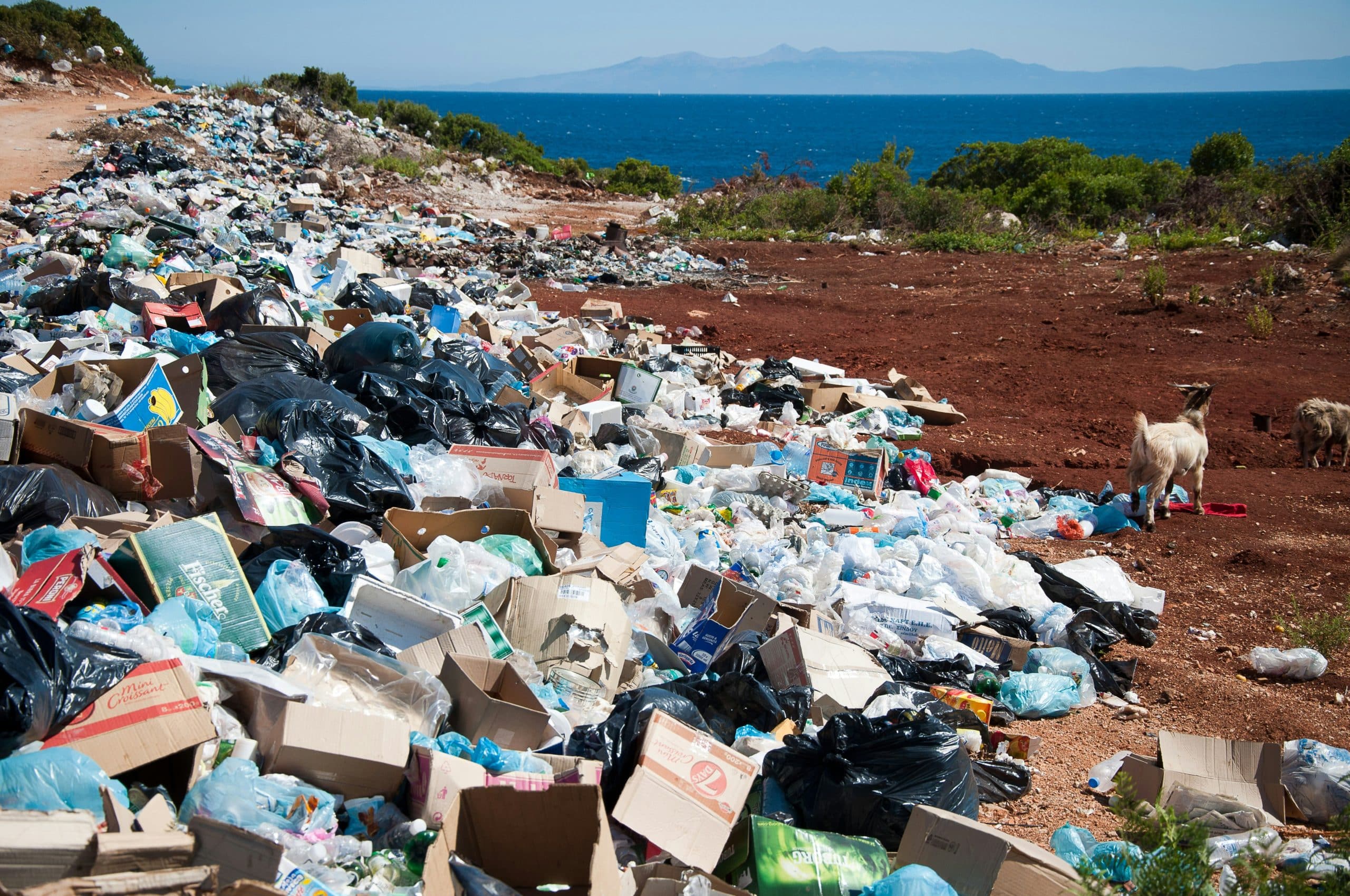Can we create a zero-waste global economy?

In a world grappling with the pressing issues of climate action and waste pollution, the concept of a zero-waste global economy is not just idealistic, it’s a necessary goal for sustainable development. Waste is an omnipresent byproduct of human activity, permeating all aspects of our economic systems, from food production to the burgeoning tech industry. However, the rise of concepts like zero waste and the circular economy offer a hopeful glimpse into a future where resources are used efficiently, and waste is mitigated, if not eliminated entirely.
This shift calls for systemic change, demanding alterations in production cycles, consumer behavior, and global waste management strategies. As consumers, corporations, and governments ponder the feasibility of such a transition, it becomes clear that achieving a zero-waste economy is not just a singular goal but a multifaceted process that must be approached from various angles, incorporating the principles of reduction, reuse, and recycling.
Sujet a lire : What are the main parameters to take into account when choosing a necklace?
Waste has become a universal concern, with the mismanagement of materials leading to environmental degradation and contributing to a host of global challenges. The transition to a zero-waste economy hinges on the collective action of individuals, industries, and nations, utilizing advancements in technology and adopting sustainable practices.
Let’s delve into the core areas that are pivotal to this transition, exploring the complexities and potential solutions that could pave the way towards a less wasteful, more circular world.
Dans le meme genre : The golden age of podcasts: exploring innovative audio content
The circular economy vision
The circular economy represents a systemic shift from the traditional linear model of ‘take-make-dispose’ to one where products and materials are kept in use for as long as possible. This approach not only minimizes waste but also leads to innovative ways of designing products and rethinking materials.
To understand how a circular economy can be the backbone of a zero-waste future, one must look at successful examples from around the world. The Ellen MacArthur Foundation, an organization at the forefront of promoting circularity, highlights that a circular economy emphasizes the importance of designing out waste and pollution, keeping products and materials in use, and regenerating natural systems.
By re-envisioning production processes and supply chains, businesses can reduce their environmental footprint while creating economic value. For instance, adopting biodegradable or compostable packaging, using renewable energy sources, and embracing modular design can significantly reduce waste. Moreover, repairing, refurbishing, and recycling products extends their lifespan, keeping them out of landfills and in the economic loop.
The problem with plastics
Plastic pollution represents one of the most visible and pervasive environmental challenges of our time. Single-use plastics, often used in packaging and everyday items, contribute significantly to the global waste issue. Despite increased awareness and action, such as bans on single plastics, the problem persists.
Combating plastic waste requires a multipronged approach. Firstly, there is a need for innovation in materials science to develop alternatives that can match the versatility and cost-effectiveness of conventional plastics without their environmental toll. Bioplastics, made from natural materials like corn starch, are emerging as a promising solution.
Secondly, improving waste management systems to enhance recycling rates is crucial. Many plastics can be recycled, yet they often end up in landfills due to contamination or lack of infrastructure. Implementing robust recycling programs and educating the public on proper disposal can turn the tide against plastic pollution.
Lastly, fostering a culture of reduction is key. Encouraging consumers to go plastic-free by choosing products with minimal or no packaging, and promoting the use of reusable alternatives, can significantly curb the demand for single-use plastics.
Tackling food waste
Food waste is a significant component of the global waste issue, with vast amounts of resources wasted in the form of uneaten food. This not only represents a loss of economic value but also contributes to greenhouse gas emissions when organic matter decomposes in landfills.
Reducing food waste is a win-win for both the economy and the environment. Strategies to tackle this issue include improving supply chain efficiency to prevent spoilage during transport and storage, as well as encouraging businesses and consumers to donate excess food to those in need.
Technology can also play a pivotal role in reducing food waste. Innovations like smart packaging that monitors freshness, apps that connect consumers with surplus food from restaurants, and data analytics that optimize inventory management can help minimize waste at various stages of the food supply chain.
Technological frontiers in waste management
In the digital age, technology companies like Google are not only reducing their own environmental impact but also facilitating broader waste reduction efforts with their resources and capabilities. Data centers, for example, are a vital part of the digital infrastructure but are also resource-intensive.
Tech companies are now designing data centers to be more energy-efficient and are investing in renewable energy to power their operations. Furthermore, they are pioneering the use of artificial intelligence to improve the efficiency of waste recycling operations and devising new ways to handle solid waste.
The role of technology companies extends beyond their immediate operations. Through collaborations and philanthropic initiatives, they support global efforts to transition to a circular economy. The Google-supported MacArthur Foundation’s work on promoting circularity stands as a testament to the potential for tech giants to aid in creating a zero-waste future.
Engaging communities in climate action
Ultimately, the transition to a zero-waste economy is not just an industrial or governmental endeavor; it requires community engagement and grassroots climate action. Communities play an essential role in changing attitudes towards consumption and waste.
Local initiatives like community gardens, tool libraries, and repair cafes reduce the need for new products and materials, fostering a culture of sharing and conservation. Education and awareness campaigns can help instill sustainable habits, while community-based recycling and composting programs can ensure that waste is properly managed.
Involving communities in decision-making and implementation ensures that solutions are tailored to local needs and are more likely to be embraced. Collective action at this level can build the momentum necessary to enact broader systemic changes.
Conclusion: is a zero-waste global economy possible?
The journey towards a zero-waste global economy is complex and challenging, yet not unattainable. By embracing the principles of the circular economy, reducing our reliance on plastics, tackling food waste, leveraging technology, and engaging communities, we can make significant strides in minimizing waste and its associated pollution.
Achieving a zero-waste future requires concerted efforts across all sectors of society. It necessitates changes in production and consumption patterns, innovations in materials and waste management, and a paradigm shift in how we view resources.
While the obstacles are substantial, the collective will and technological capabilities to overcome them are within reach. By taking decisive climate action, fostering sustainable practices, and supporting policies that promote circularity, we can work together towards a global economy that not only thrives but also preserves the planet for future generations. The commitment to reducing waste in all its forms and transitioning to sustainable systems is not just an environmental imperative but an economic opportunity that can lead to a more resilient and equitable world.
The question "Can we create a zero-waste global economy?" is both a challenge and a call to action. It is an invitation for all of us to reimagine our relationship with materials and to redefine what growth and prosperity mean in a world with finite resources. With the right strategies, policies, and community engagement, a zero-waste future is not only possible, but it is also within our grasp.
